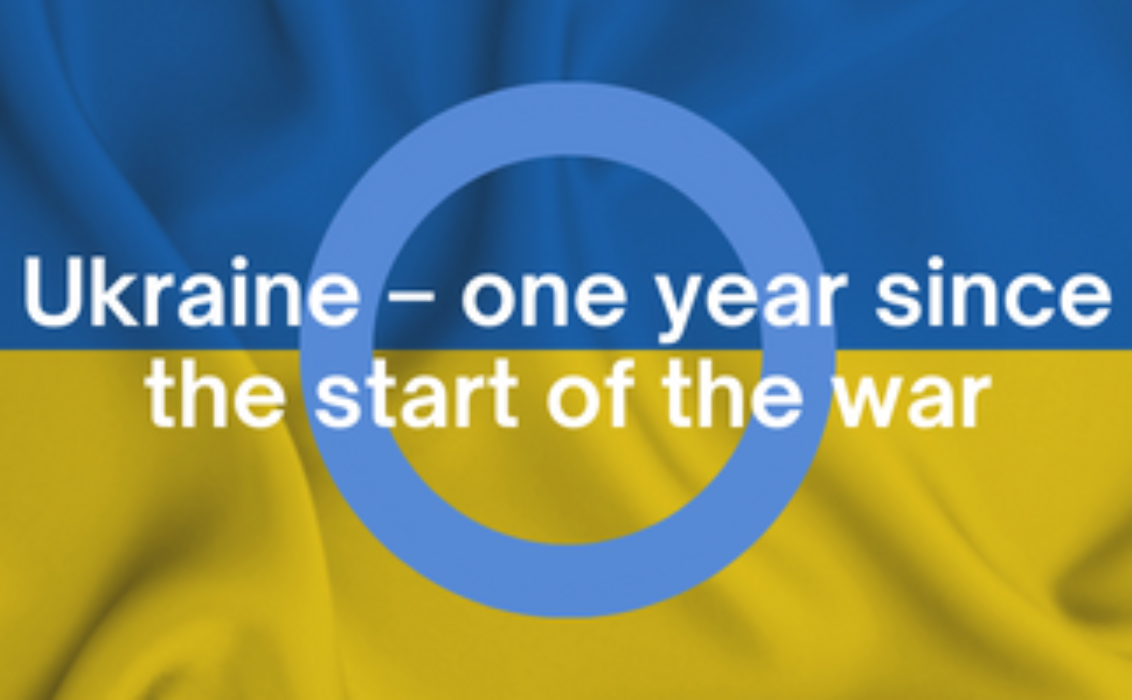Today, February 24, marks one year since the start of the war in Ukraine which has caused the displacement of millions of people and massive disruption across the country.
More than 2.3 million people were estimated to be living with diabetes in the country before the invasion. People living with diabetes (PwD) are particularly vulnerable to disruptions in, for example, access to health services, diabetes medicines and devices, food and drinks, all of which can affect their ability to manage their diabetes in the short term and places them at risk of long-term diabetes-related complications.
We recently talked to Dr Iryna Vlasenko, Vice President of the International Diabetes Federation (IDF), about the challenges PwD in Ukraine are facing one year after the beginning of the war.
“Thanks to the support of the international community, shortages of diabetes medicines and supplies are no longer the major issue. But this is not the case everywhere in Ukraine. PwD living in small villages and remote areas, often cannot access medicines and supplies as many pharmacies have closed or are not part of the government reimbursement system. There is also a shortage of healthcare professionals, and in particular endocrinologists, many of whom have left the country/remote areas. The situation is even more critical in the reclaimed territories, where most healthcare infrastructures have been destroyed. Meanwhile, it is impossible to reach the areas under Russian occupation.
 |
Civil society response during the humanitarian crisis
Another crucial challenge for PwD is the lack of prevention and screening programmes for diabetes-related complications, which is expected to lead to severe problems over the longer term. These require equipped medical facilities and expertise that are currently lacking across the country, and especially outside the bigger cities.
Stress is also having a negative impact on many people’s daily diabetes management. Not only does this make glycaemic control more complicated but it may also lead to the need for professional support, which is currently difficult to access. When fear and anxiety increase, PwD may also require more insulin per day than they would under normal circumstances.
Despite the initial lack of coordination, collaboration between the Ukrainian Health Ministry and national and international organisations has helped support the needs of PwD – be they in the supply of medicines and supplies or in other forms of help such as online initiatives. Unfortunately, increasingly frequent power outages affect onlin health support. Mobile medical units have also been deployed to reach more remote areas, although supporting populations in remote areas remains one of the major challenges.
 |
Mobile medical teams providing assistance in the reclaimed territories
 |
Polish Diabetes Association providing humanitarian help to Ukrainian PwD
Looking to the future, rebuilding the healthcare infrastructure will be key to improving PwD’s quality of life and health outcomes, but in the meantime, PwD will continue to require uninterrupted access to care, insulin, medicines and supplies, supported by governmental as well as international support.
Most importantly, what we have learned from the war is that PwD need to be prepared to face uncertain situations and they need to be proactive in managing their condition and taking care of their health. When the war is over, complications will remain. We need to raise awareness of this issue and empower people to find the help they need. During the war, several initiatives have been developed, especially online. By reaching out for support, PwD can find resources on diabetes education, stress management, and much more. Some healthcare professionals are also providing remote consultations and advice on diabetes. We are not alone, and this should motivate us to take care of ourselves and others.
I would like to thank the international diabetes community and everyone who supported us over the last year. This has been, is and will remain critically important”.
As the situation evolves, IDF Europe remains in contact with our trusted parties in Ukraine, and together with our member associations and international partners we will keep collaborating to address the needs of PwD in Ukraine. The “Connect Solidarity” platform provides resources for online medical and psychological support as well as information to help Ukrainians PwD understand what support they can get in the country where they are displaced. The platform also highlights the fundraising initiatives endorsed by IDF Europe to support the delivery of medical supplies to PwD in Ukraine, as well as our own fundraising efforts to support the work of our member associations offering assistance to Ukrainian refugees living with diabetes.
We would like to express our gratitude to Dr Vlasenko for her continuous support to the diabetes community and to our member associations and partners for their strong commitment to ensuring continuity of care and access to insulin, other diabetes medications and supplies to all in need during the past year.



